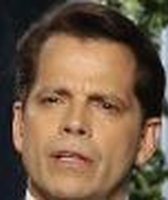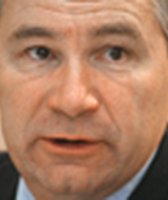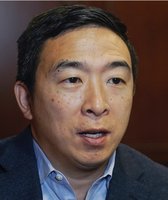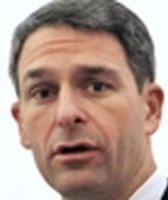Stand up for the facts!
Our only agenda is to publish the truth so you can be an informed participant in democracy.
We need your help.
I would like to contribute
U.S. law enforcement agencies and Congress are investigating links between Donald Trump’s presidential campaign and Russia, as part of a broader probe into Moscow’s meddling in the 2016 election.
At least eight Trump associates had contacts with Russian government officials or business people during the campaign and presidential transition. To date, Special Counsel Robert Mueller’s investigation has swept up four members of Trump’s campaign, including two who have agreed to work with Mueller’s team as part of a plea deal.
As the investigation has unfolded, we’ve learned that some things the Trump team claimed never happened, actually did happen. Stories have changed, recollections have been refreshed and government officials have come forward with new assessments of the intelligence.
This timeline documents everything we know thus far about the investigation into the Trump campaign and Russia. The sources are either verified events, court filings, public statements, or on-the-record media reports.
June 16, 2015: Donald Trump announces candidacy for president.
Sign up for PolitiFact texts
July 2015: Hackers backed by the Russian government penetrate the Democratic National Committee’s networks, stealing large volumes of data and maintaining access for about a year.
Mid 2015: Thousands of Kremlin-backed social media accounts begin to spread propaganda and disinformation, showing a clear preference for Trump.
January 2016: Michael Cohen, Trump’s longtime lawyer, emails Russian President Vladimir Putin’s press secretary Dmitry Peskov about plans to build a Trump Tower in Moscow.
March 19, 2016: The chairman of Hillary Clinton’s presidential campaign, John Podesta, falls victim to an email phishing scam. It is believed this is how a group of Russian hackers gained access to his email account.
Early March 2016: George Papadopoulos joins the Trump campaign as an adviser. While traveling in Italy in mid-March, Papadopoulos meets a London-based professor whom Papadopoulos understood to have "substantial connections to Russian government officials."
March 21, 2016: Trump identifies Papadopoulos and Carter Page as members of his foreign policy team, in an interview with the Washington Post.
March 24, 2016: Papadopoulos meets in London with the professor who introduces him to a female Russian national who Papadopoulos believes to be a relative of Putin with links to other senior Russian officials.
March 29, 2016: Trump taps Paul Manafort to manage the Republican National Convention.
March 31, 2016: Papadopoulos tells Trump, Jeff Sessions and other campaign members that he can use his Russian connections to arrange a meeting between Trump and Putin.
April 2016: Papadopoulos’ professor source tells the Trump adviser about a meeting with high-ranking Russian government officials in Moscow who have "dirt" on Hillary Clinton in the form of "thousands of emails."
April 2016: Russian Ambassador Sergey Kislyak attends Trump’s foreign policy speech in Washington, where he meets Trump’s son-in-law and campaign adviser Jared Kushner.
June 3, 2016: Donald Trump, Jr. receives an email from Rob Goldstone, a business associate. Goldstone tells the younger Trump that Moscow supports his father’s candidacy, and says he has a connection to a Russian government official with incriminating evidence against Hillary Clinton.
Goldstone tells Trump Jr.: "This is obviously very high level and sensitive information but is part of Russia and its government’s support for Mr. Trump."
The younger Trump replied that same day: "If it’s what you say I love it."
June 9, 2016: Trump, Jr., Manafort and Kushner meet with a Russian national and several others at Trump Tower, based on Goldstone’s promise to Trump Jr. that a "Russian government attorney" would deliver damaging information about Clinton. Several shifting accounts of the meeting were later offered.
June-July 2016: WikiLeaks and DCLeaks release thousands of documents about Clinton and internal DNC deliberations.
Early July 2016: Trump campaign adviser Carter Page travels to Moscow, where he meets with Russia’s deputy prime minister and a high-ranking Russian oil official. Page emails campaign staffers that the deputy prime minister had "expressed strong support for Mr. Trump," and that he had gleaned "incredible insights and outreach" in Russia.
July 18, 2016: Sessions talks with Kislyak after Sessions’ speech at the Republican National Convention.
July 25, 2016: The FBI publicly confirms it is investigating the DNC hack.
July 2016: The FBI opens a counterintelligence investigation into links between the Trump campaign and the Russian government. Republican members of the House Intelligence Committee later confirmed that information from Papadopoulos triggered the investigation.
July 27, 2016: During a press conference, Trump says of Clinton’s emails: "Russia, if you’re listening, I hope you can find the 33,000 emails that are missing. I think you will probably be rewarded mightily by our press."
September 2016: Sessions meets with Kislyak in his Senate office.
Oct. 7, 2016: An Access Hollywood tape is released in which Trump can be heard in the 2005 interview bragging about groping women. Less than an hour later, WikiLeaks publishes more than 2,000 emails of Clinton campaign chairman John Podesta.
Mid October 2016: Trump Jr. corresponds with WikiLeaks through Twitter’s private message service. WikiLeaks asks the younger Trump to direct his Twitter followers to its trove of documents. Fifteen minutes later, candidate Trump tweets about WikiLeaks. Two days later, Trump Jr. tweeted a link to WikiLeaks’ archive.
Oct. 21, 2016: The FBI and Justice Department obtain a warrant to monitor Page after convincing the Foreign Intelligence Surveillance Court that there is probable cause to believe Page is acting as an agent of Russia.
Nov. 8, 2016: Trump is elected president.
Dec. 1, 2016: Kushner and campaign adviser Michael Flynn meet with Kislyak at Trump Tower.
Dec. 13, 2016: Kushner meets with Russian banker Sergey Gorkov, the CEO of a state-run Russian bank under U.S. sanction. Gorkov was described to Kushner as "someone with a direct line to the Russian president who could give insight into how Putin was viewing the new administration and best ways to work together."
Dec. 29, 2016: In the waning days of his presidency, Barack Obama responds to Russia’s interference in the election by expelling 35 Russian diplomats and issuing new sanctions.
Late Dec. 2016: Following Obama’s move against Russia, Flynn asks Kislyak to "refrain from escalating the situation." Kislyak later tells Flynn that Russia "had chosen to moderate its response to those sanctions as a result of his request."
Jan. 10, 2017: In his confirmation hearing to become Trump’s attorney general, Sessions says under oath that he did not have contact with Russian officials during the 2016 presidential campaign. In a separate questionnaire submitted a week later, Sessions denied contacting any Russian officials regarding the 2016 election.
Jan. 10, 2017: A dossier compiled by former British intelligence officer Christopher Steele goes public. Steele wrote the dossier on behalf of Fusion GPS, a research firm whose work had been funded in part by the Democratic National Committee and Hillary Clinton’s presidential campaign. The document suggests the Kremlin possesses compromising material against Trump and raises the possibility Trump is vulnerable to blackmail.
Jan. 20, 2017: Trump is inaugurated as president.
Late Jan. 2017: Flynn, now Trump’s national security adviser, lies to the FBI, falsely claiming that he never discussed the Obama administration’s Russia sanctions with Kislyak.
Jan. 27, 2017: Trump tells FBI Director James Comey, "I need loyalty, I expect loyalty," according to sworn testimony Comey would later deliver to Congress. Trump has denied this.
Feb. 13, 2017: Flynn resigns after 24 days as national security adviser.
Feb. 14, 2017: Trump asks Comey to drop the investigation into Flynn, according to sworn testimony Comey would later deliver to Congress. Comey says Trump told him: "I hope you can see your way clear to letting this go, to letting Flynn go. He is a good guy. I hope you can let this go." Trump has denied this.
March 1, 2017: The Washington Post reports that Sessions met with Kislyak twice over the previous year, encounters that Sessions failed to disclose during his confirmation proceedings. Sessions later confirms these meetings.
March 2, 2017: Sessions recuses himself from any "existing or future investigations" related to the 2016 presidential election.
March 20, 2017: Comey publicly confirms the FBI’s counterintelligence probe includes "investigating the nature of any links between individuals associated with the Trump campaign and the Russian government and whether there was any coordination between the campaign and Russia's efforts."
May 9, 2017: Trump fires FBI Director James Comey.
May 11, 2017: Trump says "this Russia thing" was part of his reasoning for firing Comey.
Trump tells NBC’s Lester Holt: "When I decided to just do it, I said to myself, I said you know, this Russia thing with Trump and Russia is a made-up story, it's an excuse by the Democrats for having lost an election that they should have won."
May 17, 2017: The Justice Department appoints former FBI Director Robert Mueller as special counsel to lead the investigation into possible ties or coordination between the Trump campaign and Russian officials, as well as other matters that "may arise directly from the investigation."
July 8, 2017: The New York Times reports on the June 9, 2016, meeting at Trump Tower where Trump, Jr., Manafort and Kushner met with a Kremlin-linked Russian lawyer.
That story prompted Trump Jr. to issue the following statement to the media:
"It was a short introductory meeting. I asked Jared (Kushner) and Paul (Manafort) to stop by. We primarily discussed a program about the adoption of Russian children that was active and popular with American families years ago and was since ended by the Russian government, but it was not a campaign issue at the time and there was no follow up.
"I was asked to attend the meeting by an acquaintance, but was not told the name of the person I would be meeting with beforehand."
July 9, 2017: The New York Times reports that Trump Jr. arranged the June 9, 2016, Trump Tower meeting after being promised he would receive damaging information about Clinton.
For the second consecutive day, Trump Jr. issuea a statement to the media about the meeting. (Read a full account of the Trump team’s shifting explanations here.)
Aug. 1, 2017: White House Press Secretary Sarah Huckabee Sanders was asked about a news report that the president had tried to change the narrative around Trump Jr.'s meeting with the Russian lawyer. Sanders says Trump "weighed in" on his son’s statement about the June 9 Trump Tower meeting. Sanders’ statement is inconsistent with previous explanations offered by Trump’s team.
Oct. 5, 2017: Papadopoulos pleads guilty to lying to the FBI about his efforts to put the Trump campaign in contact with Moscow, and enters a plea agreement with Mueller.
Oct. 30, 2017: Manafort and Trump campaign associate Rick Gates surrender to the FBI after being charged with a dozen felonies each, including failing to disclose lobbying activities on behalf of foreign entities, financial crimes and making false statements. They plead not guilty to all charges.
Nov. 2, 2017: Page tells the House Intelligence Committee he had notified Sessions about contacts he made with Kremlin officials during his July 2016 Russia, contradicting Sessions’ previous denials.
Nov. 30, 2017: Flynn pleads guilty to lying to the FBI about his discussions with the Russian ambassador during the presidential transition, and enters a plea agreement with Mueller.
Feb. 2, 2018: Republicans on the House Intelligence Committee release a memorandum accusing the Justice Department and FBI of abusing their authority in the early stages of the investigation into collusion between Russia and the Trump campaign.
The memo claims that officials selectively withheld information when they obtained a warrant to monitor Page. It also says that FBI agent Peter Strzok, one of the investigators, harbored a bias against Trump. Mueller removed Strzok from the Russia probe after he learned that Strzok and a colleague had exchanged text messages that criticized Trump.
Democrats have countered that the memo cherry-picks information, and have sought to release a memo countering these allegations.
Feb. 3, 2018: Trump claims via Twitter that the GOP memo "totally vindicates" him in the Russia probe.
Feb. 9, 2018: The White House blocks Democrats from releasing their own memorandum rebutting Republicans’ Feb. 2 memo.
Our Sources
U.S. intelligence community, "Assessing Russian Activities and Intentions in Recent US Elections," Jan. 6, 2017
Washington Post, "Russian government hackers penetrated DNC, stole opposition research on Trump," June 14, 2016
Wall Street Journal, "Russian Twitter Support for Trump Began Right After He Started Campaign," Nov. 6, 2017
Statement of Michael Cohen, Aug. 28, 2017
CBS News, "The phishing email that hacked the account of John Podesta," Oct. 28, 2016
Vice, "How Hackers Broke Into John Podesta and Colin Powell’s Gmail Accounts," Oct. 20, 2016
Statement of the Offense, U.S. v. George Papadopoulos
PolitiFact, "Sean Spicer’s False claim that Paul Manafort played a minor role in the Trump campaign," March 22, 2017
Statement by Jared Kushner, July 24, 2017
Tweet by Donald Trump Jr., July 11, 2017
ABC News, "Emails Released by WikiLeaks Appear to Show DNC Trying to Aid Hillary Clinton," July 22, 2016
PolitiFact, "What you need to know about newly revealed Trump campaign-Russia ties," Nov. 9, 2017
Jeff Sessions letter to Senate Judiciary Committee, March 6, 2017
Politico, "FBI probing DNC hack," July 25, 2016
Republican House Intelligence Committee memo, Feb. 2, 2018
Donald Trump press conference, YouTube, July 27, 2016
New York Times, "Obama Strikes Back at Russia for Election Hacking," Dec. 29, 2016
PolitiFact, "In Context: What Jeff Sessions told Al Franken about meeting Russian officials," March 2, 2017
BuzzFeed, text of the Steele Dossier, Jan. 10, 2017
Remarks by President Donald Trump, June 9, 2017
Washington Post, "Michael Flynn resigns as national security adviser," Feb. 14, 2017
PolitiFact, "Read James Comey's opening remarks for the June 8 Senate hearing," June 7, 2017
Tweet by Donald Trump, Dec. 3, 2017
Washington Post, "Sessions met with Russian envoy twice last year, encounters he later did not disclose," March 1, 2017
Attorney General Jeff Sessions statement on recusal, March 2, 2017
House Intelligence Committee hearing on Russian interference in the 2016 U.S. election, March 20, 2017
Letter from President Donald Trump firing FBI Director James Comey, May 9, 2017
NBC News, "President Trump: This Russia Thing is a Made Up Story," May 11, 2017
Deputy Attorney General Rod Rosenstein letter appointing special counsel, May 17, 2017
New York Times, "Trump Team Met With Lawyer Linked to Kremlin During Campaign," July 8, 2017
New York Times, "Trump’s Son Met With Russian Lawyer After Being Promised Damaging Information on Clinton," July 9, 2017
Fox News, "Full statement by Donald Trump Jr. on Sunday's New York Times report," July 9, 2017
Washington Post, "Trump dictated son’s misleading statement on meeting with Russian lawyer," July 31, 2017
White House press briefing, Aug. 1, 2017
PolitiFact, "3 times Trump team changed its story on Russia," Aug. 3, 2017
Lawfare, George Papadopoulos stipulation and plea agreement, Oct. 30, 2017
PolitiFact, "What you need to know about Manafort indictment, Papadopoulos guilty plea," Oct. 30, 2017
New York Times, "Former Trump Aides Charged as Prosecutors Reveal New Campaign Ties With Russia," Oct. 30, 2017
Washington Examiner, "Carter Page: Telling Jeff Sessions of Russia trip 'was as irrelevant then as it is now,' " Nov. 2, 2017
PolitiFact, "House presses Jeff Sessions on Trump campaign's Russia ties, Clinton special counsel," Nov. 14, 2017
United States v. Michael Flynn, Dec. 1, 2017
PolitiFact, "Fight erupts over GOP intel memo’s accuracy," Feb. 2, 2018
Wall Street Journal, "Inside the FBI Life of Peter Strzok and Lisa Page, as Told in Their Text Messages," Feb. 2, 2018
Tweet by Donald Trump, Feb. 3, 2018
New York Times, "Trump Blocks Release of Memo Rebutting Republican Claims," Feb. 9, 2018














































